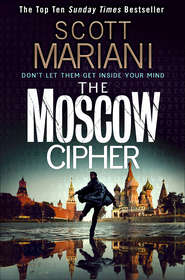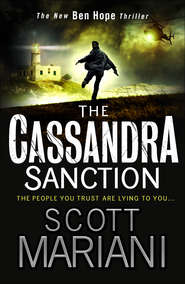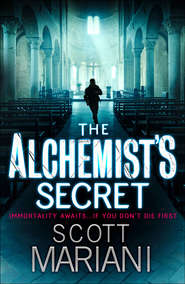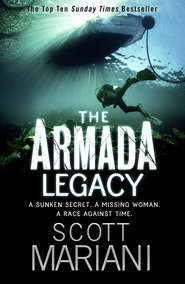По всем вопросам обращайтесь на: info@litportal.ru
(©) 2003-2024.
✖
Conspiracy Thriller 4 E-Book Bundle
Автор
Год написания книги
2019
Настройки чтения
Размер шрифта
Высота строк
Поля
The late priest’s housekeeper, Cécilie Lamont, peeked through the window at the disappearing taillights of the car, then tutted loudly in disgust and marched over to the phone to call her elder sister in Perpignan. ‘Can you believe what the world’s coming to, Claudette?’ she complained bitterly. ‘Now it’s two rosbifs coming round here to pry into poor Father Lalique’s affairs. As if there hadn’t been enough injustice done to that man already!’
‘You should report them,’ Claudette croaked. She was eighty-seven and full of emphysema. ‘Did you get their names?’
Cécilie thought for a moment and said yes, the older of the two had given his name – she pronounced it ‘Ope’. Spoke almost perfect French, hardly a trace of accent, and it had only been when they’d started talking English that she’d realised they were rosbifs. They’d told her they were staying nearby, and perhaps she should call her grandson Philippe at the gendarmerie in Millau. Philippe would know how to deal with their kind.
Cécilie ranted on a while longer about foreigners, then returned to the subject of all the terrible intrusions she was having to endure now that dear Father Lalique was gone. She couldn’t wait until January, when his replacement Father Girard would arrive along with a new housekeeper, and she could finally retire and move to Perpignan to be with Claudette. There was nothing like family, the two sisters agreed.
After a few minutes, the operative monitoring the phone call from much further away than Perpignan decided he’d heard all that was going to be useful. He turned off his earpiece and let the two old ladies natter on. The details of Madame Lamont’s two foreign visitors were information he needed to relay immediately.
Earlier that day, the team had acquired the details of the ferry booking made by Ben Hope, minutes after it had been made; just over eight hours ago, they’d learned that Hope and Arundel had cleared passport control into France and duly passed that information over to Rex O’Neill. Since then, the team had been frantically trying to pick up a trace of their targets. Now all of a sudden the trail was live again.
The operative picked up a phone and quickly stabbed in a number.
Things would move quickly from here.
Chapter Thirty-Four
The village’s only hotel was the Auberge Saint-Christophe, a medieval inn that seemed to be undergoing its first major overhaul in about seven centuries and was half-hidden behind a tower of scaffolding. The owner was apologetic, but the renovations meant all he could offer Ben and Jude was a small twin room. Sadly the restaurant was closed too, but the owner could heartily recommend Chez Moustache at the other end of the village. Ben took the room anyway.
The snow was floating down and beginning to line the cobbled streets as Ben and Jude left the Auberge in search of Chez Moustache. They found the old stone building down a winding alley, with a sign that swung in the wind. A battered red Peugeot 504 pickup was parked outside, empty bottle crates littered on the back.
Ben led the way inside the bar. In contrast to the sleepy street the place was lively, noisy and crowded. He saw right away how it had got its name. The barman was a broad, bear-like character sporting a formidable set of grizzled whiskers that he must have spent the last thirty years pampering.
‘Bonsoir, messieurs. Je suis Moustache,’ he welcomed them proudly, the bush parting in a toothy grin. There was a door open behind him leading through to a busy kitchen, two women scurrying here and there amid a lot of steam and smoke, leaping flambée flames and some wonderful odours of frying meat, garlic and shallots.
Ben asked Moustache if they could cook up a couple of steak-frîtes for him and his friend. No problem, Monsieur. Ben ordered a whisky aperitif. ‘You want a drink?’ he asked Jude.
Jude wrinkled his nose. ‘Not one like that. Whisky tastes like shit.’
‘Says the connoisseur. I’m sorry they don’t serve Guinness, red wine and vodka cocktails in this place.’
‘Ha, ha. I’ll have a beer,’ Jude said.
‘Un demi pour le gosse,’ Ben said to Moustache, jerking his thumb at Jude.
‘What’s a gosse?’ Jude wanted to know.
‘It means a snotty-nosed brat.’
‘Oh, thanks. Keep them coming, why don’t you?’
Some guys at the other end of the bar had picked up on their English conversation and were looking over. One of them was bony and acne-scarred with greased-back hair, slumped on a high stool with his elbows on the counter. Leaning against the bar next to him was a thick-chested, bearded man of about fifty, who wore a heavy chequered work shirt with the sleeves rolled up. They were all knocking back shots of some kind of clear liquor. Whatever bottle it had come from was out of sight under the bar. ‘Eh, les rosbifs,’ Ben heard the bony one call out. The bearded one grinned. Someone else let out a cackle.
‘Did that guy just call us something?’ Jude asked, staring back at them.
‘He called us rosbifs. Like roast beef,’ Ben explained. ‘It’s one of the kinder terms the French use to describe the Brits.’
‘I don’t even like roast beef,’ Jude muttered, maintaining eye contact with the guys at the bar. ‘Hey. You got a problem?’ he said more loudly.
‘Take it easy,’ Ben told him. ‘We didn’t come here for a bar brawl.’
‘Oh, I bet you never got in a fight in your life.’
‘Never once,’ Ben said.
Moustache had taken in the situation. ‘They’re not bad lads,’ he said in French as he finished pouring Jude’s beer. ‘Just having some fun.’
‘I have no problem with that,’ Ben said. Jude picked up his beer and took a gulp. The guys at the bar had lost interest and started chatting among themselves, laughing as they drank their colourless drinks.
‘You’re not a tourist,’ Moustache said to Ben with a half-smile.
‘No, I live in France,’ Ben told him. ‘I’m here because of Fabrice Lalique.’ Might as well throw it out and see what comes back, he thought.
Moustache narrowed his eyes and clunked the brimming beer glass down on the bar. ‘You mean Father Lalique?’
Ben nodded.
‘He’s dead.’
‘I know,’ Ben said. ‘I read all about it.’
‘Your steaks’ll be ready soon,’ Moustache rumbled, suddenly less than friendly. ‘You want to take a seat over there? Corinne will bring the food over to you.’
‘I was just wondering what local people might have thought about what happened to him,’ Ben said.
‘He killed himself. He was sick. That’s it. Fini.’
Moustache seemed about to turn away, so Ben pressed on while he still could. ‘He must have known a lot of people, made a lot of friends around here over the years. Does everyone feel that way? Doesn’t anybody find what happened a little odd, a little out of character?’
‘People here have had enough of talking about Fabrice Lalique, okay? Now, if you’ll excuse me, I’m busy.’
‘You know what I think?’
‘Monsieur, nobody is interested in what you think.’
‘I think a lot of people around here don’t buy the stories about Father Lalique. That’s why I’m here, because I’m looking for the truth about what happened to him.’
‘You are from the police? A detective?’
‘I’m just a concerned member of the public,’ Ben said. He laid a business card on the bar. ‘This is my number if anyone wants to talk to me.’
The guys along the other end of the bar had stopped chatting among themselves and were all silent. The bearded one in the work shirt was looking at Ben intently. The expression in his dark eyes wasn’t easy to read.
The kitchen door swung open and a harried-looking young blonde emerged carrying two steaming plates, calling out shrilly, ‘Deux steak-frîtes!’ Moustache pointed at Ben and Jude, and then the bar conversation was over as their evening meal was served to them at a corner table.
‘What was all that about?’ Jude said through a mouthful of fries.
‘Just some basic reconnaissance,’ Ben said.











